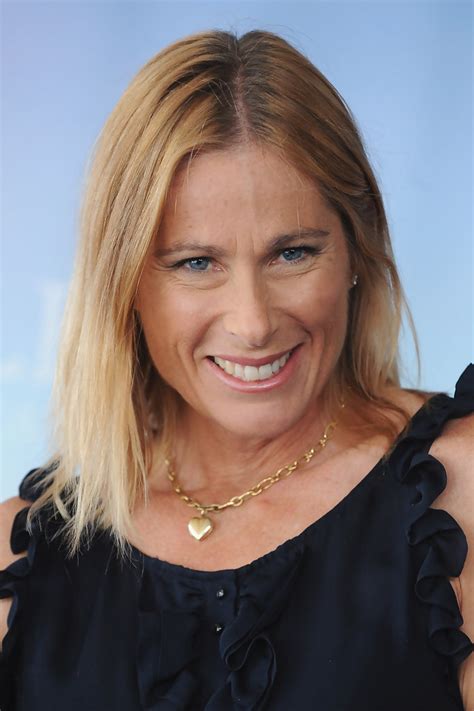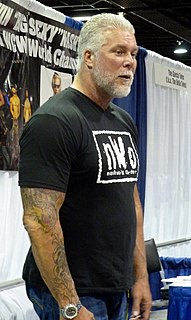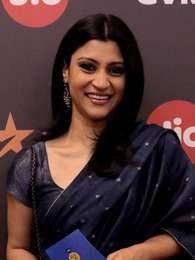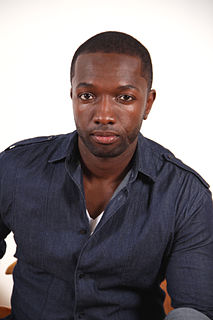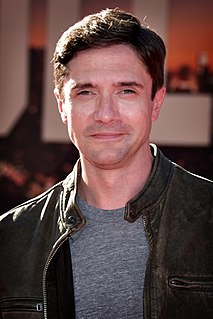A Quote by Cary Fukunaga
I've never watched my films with an everyday audience so it was really crazy to watch people clap at the end of my film - with no one there, no actors, no people from the film. It was just a spontaneous reaction, so I thought that was probably the best compliment you could get from an audience.
Related Quotes
I wanted to make a film that wasn't just a biography. When you watched it, you actually felt that you watched a movie, that you had an emotional reaction. In order to do that, I felt that I had to really keep myself emotionally raw while working on the film. I had to feel myself crying, so the audience could be moved, too.
It's very important that a film that intends to play tricks on the audience... has to play fair with the audience. For me, any time you're going to have a reveal in the film, it's essential that it have been shown to the audience as much as possible. What that means is that some people are going to figure it out very early on. Other people not til the end. Everybody watches the film differently.
The first thing I say when people ask what's the difference [between doing TV and film], is that film has an ending and TV doesn't. When I write a film, all I think about is where the thing ends and how to get the audience there. And in television, it can't end. You need the audience to return the next week. It kind of shifts the drive of the story. But I find that more as a writer than as a director.
I'm one of those people who can't watch themselves do anything. I could never watch myself wrestle. I've probably watched a handful of my matches. I never could watch myself. Even when I played college basketball, I hated film days... 'Oh God, I'm gonna watch myself screw up.' I'm just one of those people who can't watch their work.
We played a show the other week at this festival and it was an audience that I'd never normally play in front of. That's one the greatest things about festivals: you don't always get your audience, you get people who just pop in out of curiosity. The reaction was amazing; there were people dancing, which we've never had, I guess because the message is pretty powerful and the performance is a lot more visceral than it has been previously. The audiences seem to be reacting to that really well and it's a wonderful thing, because at a performance you really bounce off your audience.
You can work really hard on your physicality, on your craft, on the films you do. You can choose the best of directors, the best of productions, get the best technicians, you can put your entire body and soul into the making of a film, but at the end of the day, it all depends on the mood of that one audience member that goes into that theater.
As a filmmaker, I believe in trying to make movies that invite the audience to be part of the film; in other words, there are some films where I'm just a spectator and am simply observing from the front seat. What I try to do is draw the audience into the film and have them participate in what's happening onscreen.
Carrie was a terrific piece of work. At the end of the movie comes, when Amy Irving kneels down to put the flowers on Carrie's grave, a hand comes up through the grave and seizes her by the arm. The audience went to the roof, totally to the roof. It was just the most amazing reaction. And I thought, 'We have a monster hit on our hands. Brian De Palma has done something new. He's actually created a shock ending that shocks an audience that was ready for a horror film.' And there were several people who did it after that.
The great thing about a sitcom is that you're in front of a live audience, so you really get in touch with what audience reaction is, but also there are lots of elements of film that you're dealing with, and there's kind of a great boot camp or graduate school mentality to it, because you're going to suck.
There's something that happens where you go, if you're lucky, goodness me, from film to another film to another film. And you can sort of feel that if you step off that treadmill, it might all go horribly wrong and you might never be employed again, you know. And I suddenly thought that that's not necessarily the case. And I also thought we make drama as actors about people in the world and that if you are on that treadmill, you start making films about other films.

